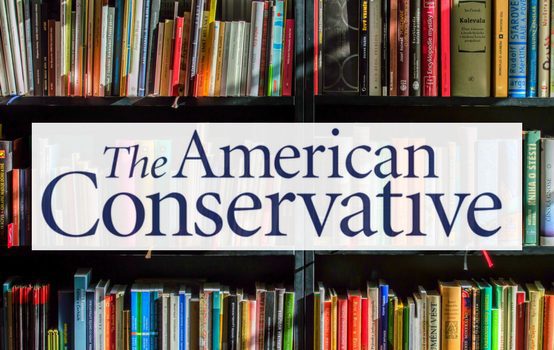TAC Bookshelf: The Reason for Those Christmas Candles

Emile A. Doak, director of development: With the Advent season upon us, I’ve been reading Celebrating a Merry Catholic Christmas, by Father William Saunders. Father Saunders happens to be pastor of my parish in Virginia, which is how I learned about the book. But it’s no provincial work: it’s been widely reviewed throughout national Catholic media since its publication in 2018. Perhaps that’s because its themes of reclaiming the Advent and Christmas seasons for Christ are as evergreen as the Advent wreath.
The “Christmas Wars” that inevitably roll around every year can too often slide into the realm of the ridiculous, with Christians voicing outrage over seemingly trivial things like the color of a Starbucks cup. But the “Christmas Wars” don’t come from nowhere: commercialism and political correctness really have pushed Christ from His season, leaving Christians to discern how best to reverse course. Thankfully, Celebrating a Merry Catholic Christmas is more didactic than critical. Father Saunders lays out how the Church, in Her wisdom, has given Catholics the resources to constructively counter our secular age—and how the Christmas season is unintelligible outside of its proper religious context. Everything from Feast Days to Advent wreaths to Christmas Crèches exist to point us towards the true “reason for the season.”
Take, for example, the tradition of placing candles in windows at Christmastime. This custom stems from the response of Catholics to the British persecution of the faith during the 17th century. Father Saunders explains how Catholic families would place either one or three (representing the three members of the Holy Family) candles in their windows and leave their doors unlocked. This was meant as a signal to underground priests to visit their homes so they could receive the sacraments. Today, a simple Christmas candle in a window appears as irreligious in nature as a snowman or Rudolph the red-nosed reindeer. But remembering its history is yet another subtle way for Catholics to reclaim our second-most holy liturgical season from its secular and commercialized variant.
Celebrating a Merry Catholic Christmas is a much-needed reminder of the richness of the Catholic faith. Of the many problems facing the Church, GK Chesterton once remarked, “Only the word of a Catholic can keep [others] from Catholicism. One foolish word from inside does more harm than a hundred thousand foolish words from outside.” In an ecclesial environment of banal liturgy and troubled hierarchy, Chesterton rings as true as ever. But despite we many sinners, there is an enduring beauty and mystery that’s prevailed for over 2,000 years. It is Christ’s one Church, and there’s no better time to remember that than during this Advent season.
Bradley J. Birzer, scholar-at-large: This past weekend, I had the chance to read Philip Freeman’s latest in the Princeton University series “Ancient Wisdom for Modern Readers.” Entitled How to Think About God, Freeman collects and translates two essays by Cicero, “On the Nature of the Gods” and “The Dream of Scipio.” One realizes immediately how utterly pagan this world was, and just how revolutionary Christianity was to it. Still, the book is beautiful and full of homey wisdom. Cicero especially relied on the Stoics for his metaphysics. He recorded:
Cleanthes of our Stoic tradition said there are four ways in which the nature of the gods is made known to our souls. The first, which I just now discussed, arises from the foreknowledge of future events. The second, we receive from the abundant benefits that come to us from our temperate climate, the fertility of the Earth, and many other blessings. The third method of divine revelation is from the terror we feel in our souls from lightning, storms, downpours of rain, snow, hail, devastation, plague, and earthquakes, as well as from rumblings of the ground, showers of stones, and raindrops as red as blood.
The fourth comes from observations of the orderliness of the universe.
Not totally unrelated, but taken in for pure pleasure, I also finished the Audible-only book Stake, by my favorite living science-fiction and fantasy author Kevin J. Anderson. Men and women are turning up “staked” to death in modern Colorado Springs, while a disgruntled and jaded detective and a gullible social media conspiracy theorist investigate. They quickly begin to wonder whether there really are vampires in the world. A riveting story about the supernatural, “fake news,” friendship, reality, and secret societies, Stake kept me in its grip (its maw!) from the opening page to the end.
Finally, for end-of-semester lectures, I happily re-read Edmund Burke’s masterpiece Reflections on the Revolution in France. The book is simply too good, too powerful, and too full of important things to be summed up in a sentence or two. With certainty, every reader of The American Conservative should own a copy. Burke reminds us that all real love begins at the most immediate level possible:
We begin our public affections in our families. No cold relation is a zealous citizen. We pass on to our neighbourhoods, and our habitual provincial connections. These are inns and resting-places. Such divisions of our country as have been formed by habit, and not by a sudden jerk of authority, were so many little images of the great country in which the heart found something which it could fill. The love to the whole is not extinguished by this subordinate partiality.
Comments